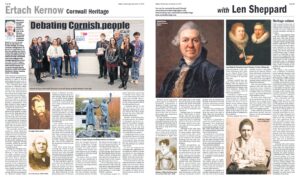Ertach Kernow - Debating Cornish People
The Historical Association’s Great Debate speaking competition is open to schools and colleges for years 10 to 13, student ages between 16 to 19. The Cornwall final held this year at Callywith College, Bodmin was especially interesting. After internal heats the final was held between five schools and colleges each represented by two students. This year’s topic was: Which historical place or person from your local area deserves greater recognition? This gave students a wide range of interesting Cornish people and places to choose from. Each student is given a maximum of five minutes to argue the case for their person or place, with deductions for overshooting this time limit. This annual event provides an opportunity for students to gain experience in public speaking and to learning to argue their particular case in competition against others.
As always click the image for larger view
The morning started with students from Redruth School and Charlie Richards on Henry Jenner and the Cornish language revival. Henry Jenner is quite well-known for his work relating to the Cornish language within Cornwall, setting up the Old Cornwall Movement and Gorsedh Kernow. Perhaps his standing relating to Cornish culture and identity is well deserving of a wider audience outside Cornwall, especially amongst the other Celtic nations. Charlie had obviously done his research well, but in the context of this competition presentation was crucial and with few notes Charlie gave a very credible performance. Following on was Carol Chong with her presentation on Michael Joseph better known as Michael An-Gof a well-known person from Cornish history. After all, did he not say whilst being dragged on a hurdle to the scaffold he would have ‘a name perpetual and a fame permanent and immortal.’ Well over five hundred years later with annual commemorations to this Cornish national uprising in 1497 that is certainly the case here in Cornwall. Carol argued her case very well and managed to ensure she was well within her time limit.
Josh Tucker from Camborne Science & International Academy argued the case for poet John Harris. The John Harris Society has done great work in promoting this 19th century poet and was a topic in the History Heritage and Culture course at Truro College a few years ago. This can be viewed on the Kowethas Ertach Kernow website. Josh did a great job in sharing his views of this lesser-known 19th century Cornish poet who through self-education and working as a miner in Dolcoath Mine for over 20 years eventually managed to leave that life behind. He was awarded a grant of £200 from the Royal Bounty Fund by Prime Minsters Benjamin Disraeli later Earl of Beaconsfield and later a £100 by William Gladstone in 1881. Mary Kelynack was Isla Richards person of interest who she thought deserved better recognition. Perhaps better known than maybe thought, this aged woman, a fishwife from Newlyn was made famous by her walking to London to visit the Great Exhibition of 1851. Too long a story to repeat here she was mentioned in English national newspapers as well as Cornwall and has had music and songs written about here. Retold in a song written by Richard Gendal in the 1980’s this was recorded and popularised by Brenda Wooton the famed Cornish singer. An interesting presentation by Isla who used her time well.
It's always good to learn new things about Cornwall and Cornish people. Mae Osborne the first speaker from Truro’s Penair School certainly did that with her presentation on Samuel Foote a 18th century gay playwright from Truro. A very interesting topic and ably presented, Mae could do very well in expanding the life of this actor, theatre manager and dramatist to a far wider LGBTQ+ audience. Now perhaps largely forgotten Foote who came from a wealthy Truro family led a very interesting life with many rises and falls. This included from a horse resulting in him losing a leg after which he still continued to act. A leading satirist of his day, there were those who although admiring his work also feared that they might become the focus of his verbal and written jabs. Another interesting lesser-known person, the subject of Margarita Kosmani’s argument for greater recognition, was Mary Ann Tocker. Someone new to me and who should really be better acknowledged as a role model and inspiration for women. A Tregony girl born in 1778 she became famous for being the first woman in Cornwall to be tried for libel, she was also the first woman to act in her own defence in a British court of law. She was not supported by the judge who repeatedly interrupted her defence. would not permit her the privileges granted to a male defence lawyer and even tried coercing the jury to find her guilty. It took just half an hour for the jury foreman to advise the judge and pronounce Mary Ann Tocker not guilty. There was a huge outpouring of public support for Mary Ann as well as money raised for her benefit.
Meryen Carey-Lang from Truro spoke on behalf of Elizabeth Trevannion a daughter of Hugh Trevannion of St Michael Caerhays. She would marry her 1st cousin Robert Carey, 1st Earl of Monmouth who was by chance first cousin once removed of Queen Elizabeth. On the accession of James I of England Robert had ingratiated himself with the new king and his wife Anne of Denmark for whom Elizabeth was made a ‘Lady of the Privy Chamber’. Their second son Charles was a sickly weak child but came under the ministrations of Elizabeth at aged four until aged eleven. She fought for the benefit of the young prince who would eventually ascend the throne as Charles I. Fortunately she did not live to see his downfall and execution. Perhaps here in Cornwall Dolly Pentreath is well-known. She was the subject of Abi Penna’s presentation supporting Dolly as reputedly the last historical Cornish language speaker and someone who deserved greater recognition. Although Dolly may have been the last monoglot Cornish speaker there were no doubt many who could converse in Cornish well up to the revival in the Cornish language into the 20th century, especially within their families. Dolly’s recognition, especially by Louis Lucien Bonaparte helped maintain her reputation. She remains an iconic person for the near death of the Cornish language, although her position in history remains uncertain.
Callywith College’s first speaker was Asha Chevannes whose presentation was for the greater recognition of Cornish poet and author Charles Causley born in 1917. Arguably one of Cornwall’s best loved poets of the 20th century his poetry wasn’t perhaps seen as mainstream finding inspiration through localism especially around his home in Launceston and Cornwall. His later work included and was often aimed at children from the 1960’s but said of them ‘there are no good poems for children that are only for children’. His work as a playwright is maybe less well-known and ‘Runaway’ first published when just 19 was shortly afterwards broadcast on the BBC radio Home/West Country channel shortly before the start of World War II. Recognised in Cornwall by being created a bard of the Cornish Gorsedd in 1955 he was also later awarded a CBE. Now is time that perhaps his works need sharing again to a new and wider audience.
Ella Brooks-Richardson the final candidate considered that the Cornish born suffragette Selina Jane Cooper (née Coombe) born in 1864 in Callington needs greater recognition. Perhaps she is right. The family moved to Barnoldswick, Yorkshire after her father’s death and she became a cotton operator and later a staunch trade unionist. A member of a number of socialist organisations in 1910 she was one of four women representatives of the suffrage movement who went to see Liberal Party Prime Minister H.H. Asquith a noted anti-suffragist to present their case. Perhaps Asquith was unduly influenced by his wife Margot who was against the suffrage movement and wrote ‘women have no reason, very little humour, hardly any sense of honour...and no sense of proportion.’ Coombe or Cooper as she became after marriage developed the first ever maternity centre in Nelson, Lancashire. Despite her house at 59 St Mary's Street, Nelson being marked with a heritage blue plaque she is often not mentioned as a notable resident of the town or in her previous place of residence at Barnoldswick.
Having judged this for a number of years I was again joined by Dr Jamison Tucker from Plymouth University. Both of us are hoping to repeat a Cornwall 2021 success as the Historical Association’s ultimate winner with Kit Renshaw from Penzance. After extensive deliberation Jamison and I felt that Asha Chevannes from Callywith College would best represent Cornwall, with a very worthy runner up Charlie Richards from Redruth School. We were most impressed by the performance of all the students, but as always there has to be a winner who needs to stand against some strong opposition from English school and college students. It was a difficult choice and good wishes go with Asha for success in her presentation later in 2024.
Some of these students are still young enough to be able to participate again next year and benefit from this years’ experience. In fact, last year’s Cornwall winner Elizabeth Berg who went onto compete in the English national finals was a runner up in her first year. Taking part in this competition is certainly a great way of encouraging students in speaking publicly and credit should go to those schools who participate and the tutors who encourage and support them at this annual event. Thanks for this year’s Cornwall final to Louise Doney at Callywith College for arranging the hosting and to Marilla Walker who hosts at Truro College and was instrumental in initiating Cornwall into this competition. Thanks to this year’s co-judge Dr Jamison Tucker and in previous years Dr Harry Bennett both from Plymouth University.
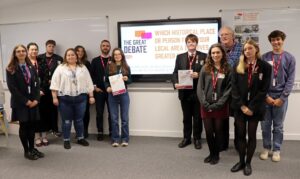
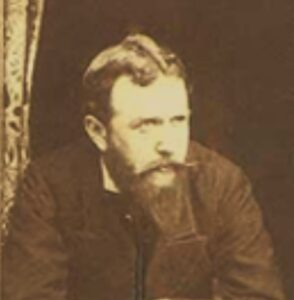
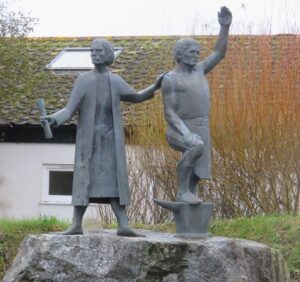
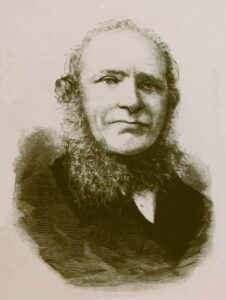
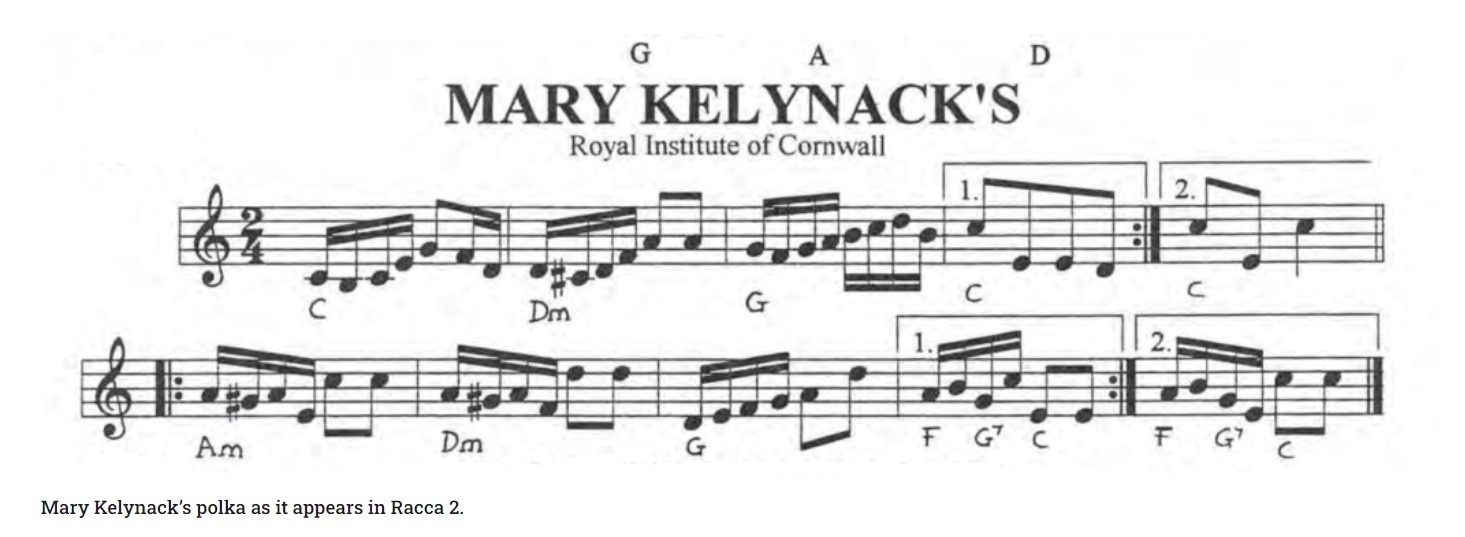
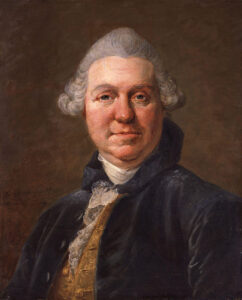
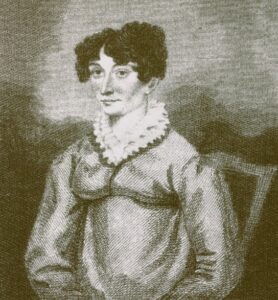
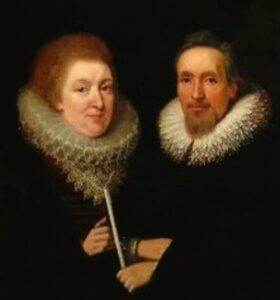
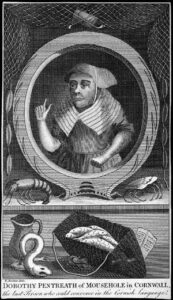
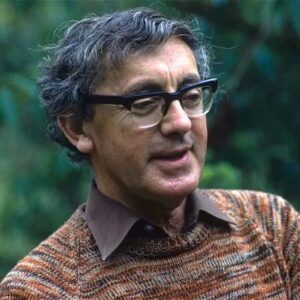
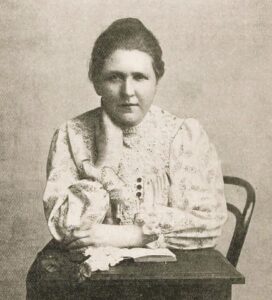
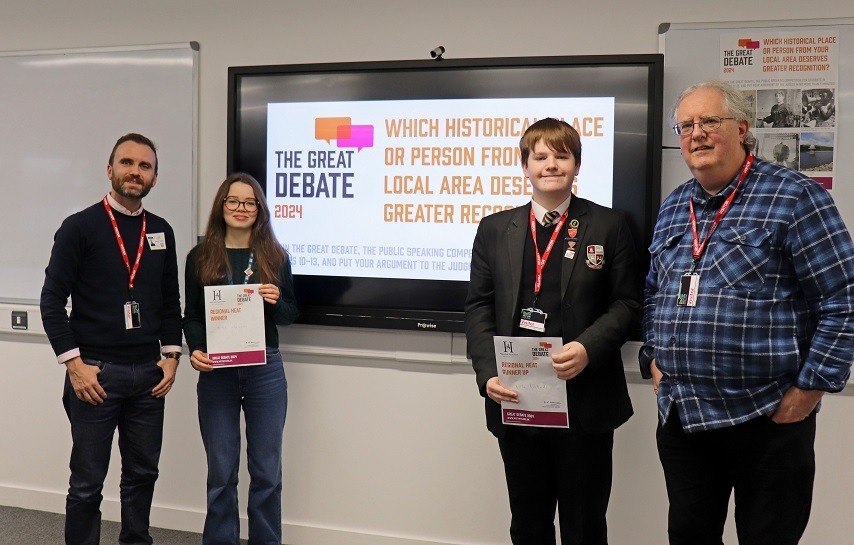
![Ertach Kernow - 13.12.2023 [1] Debating Cornish people](https://www.cornwallheritage.com/wp-content/uploads/2023/12/Ertach-Kernow-13.12.2023-1-254x300.jpg)
![Ertach Kernow - 13.12.2023 [2] Debating Cornish people](https://www.cornwallheritage.com/wp-content/uploads/2023/12/Ertach-Kernow-13.12.2023-2-254x300.jpg)
![[181] Ertach Kernow Heritage Column - 13th December 2023 - Padstow Carols, Callington Music, Remembering Anne Knight Ertach Kernow Heritage Column - 13th December 2023 - Padstow Carols, Callington Music, Remembering Anne Knight](https://www.cornwallheritage.com/wp-content/uploads/2023/12/181-Ertach-Kernow-Heritage-Column-13th-December-2023-Padstow-Carols-Callington-Music-Remembering-Anne-Knight.jpg)
